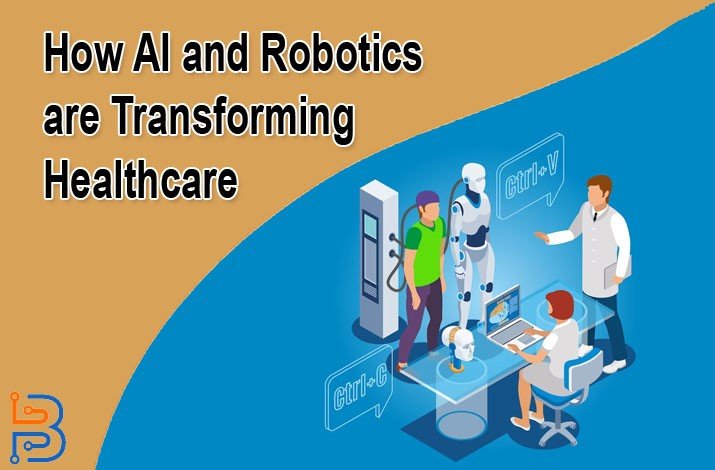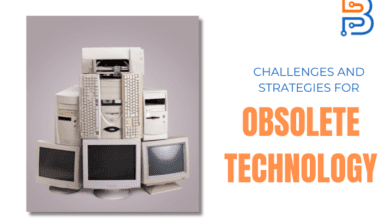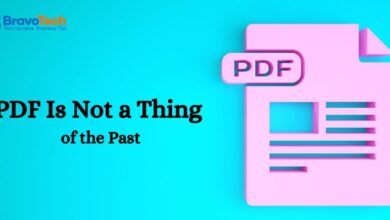How AI and Robotics are Transforming Healthcare

Artificial Intelligence (AI) and Robotics are revolutionizing the healthcare industry incredibly. From offering a bunch of different opportunities to improve the patient’s recovery speed, these technologies can streamline numerous processes. You will be able to have an advanced diagnosis of the disease. Ultimately, it helps you recommend better treatment. Utilizing the AI’s ability to analyze the vast amount of data, healthcare workers can optimize different operations to deliver better results. In addition, by bringing robotics’ precision and automation to their working patterns, industries can take their journey to an advanced level. This guide will explore how AI and robotics are transforming healthcare.
The Intersection of AI and Robotics
The intersection of AI and robotics showcase a powerful collaboration between artificial intelligence and automation. New possibilities emerge by leveraging AI’s ability to process bulk data and make intelligent decisions with robotics. Hence, it will bring precision and improve physical capabilities in particular industries. This synergy has transformed all industries, including manufacturing, transportation, and healthcare. Robots integrated or driven with the help of Artificial Intelligence are capable of carrying out numerous complex tasks simultaneously. Above all, they bring adaptability, efficiency, and autonomy to the work. Ultimately, you can create new opportunities and take your company ahead of the competitors.
How AI and Robotics are Transforming Healthcare
As elaborated previously, AI and robotics’ collaboration delivers massive benefits to every industry, and healthcare is no exception. After understanding all the advantages and benefits of automation, we have listed some important points, explaining how AI and robotics are transforming this industry.
1 – AI-Driven Diagnostics
Artificial Intelligence tools like ChatGPT and others work on the basis of incorporated data. With time, the manufacturers are adding more and more information to the infrastructure of these tools, allowing them to deliver more productive responses. By taking them into the health industry, you can diagnose diseases more precisely and accurately. Further, companies are integrating Artificial Intelligence into traditional devices, X-rays, MRIs, and CT scans. In this way, radiologists can receive remarkable precision in the results to detect abnormalities and diseases.
2 – Virtual Health Assistants
Technological evolution has enabled industries to design AI-powered virtual health assistants. They are becoming increasingly popular in the healthcare industry because of their extreme benefits. These virtual agents are capable of interacting with patients and answering their queries. In addition, they can also fix doctor’s appointments and provide personalized health advice. By leveraging natural language processing and machine-learning algorithms, virtual health assistants can better understand the patients’ questions and give more productive and effective responses.
3 – Predictive Analytics for Patient Outcomes
Artificial Intelligence has evolved incredibly in recent years, thus, helping healthcare workers to predict patient outcomes with higher accuracy. By analyzing the patient’s historical data and several risk factors, you can easily understand the effects of the medicines you give to them. It also helps in the proactive intervention of the disease and adopts effective measures to prevent it from coming. As a result, it reduces the need for hospital readmission and overall healthcare costs.
4 – Robot-Assisted Surgery
Robot-assisted surgery is also getting more and more popular due to the exclusive perks associated with it. They allow minimally invasive procedures to complete with greater precision and control. Furthermore, surgeons can use robotic systems to perform complex operations with small incisions. As a result, the patients will feel less pain and experience faster recovery alongside shorter stays in the hospitals. Robotic surgery has reduced the risk of manly errors, promising more patient safety during surgeries.
5 – AI-Enhanced Drug Discovery

Artificial Intelligence has revolutionized drug discovery and transformed it from a time-consuming and expensive process to an efficient and accelerated one. With the help of data-driven approaches, AI is driving drug development at a rapid pace, resulting in significant perks. Similarly, using machine learning models has enabled companies to analyze the databases of molecular structures to identify potential drug candidates. In this way, they can make their way into the market with new discoveries, speeding up the availability of treatments for various diseases.
6 – Remote Monitoring
In the previous sections, we elaborated on the use of AI in healthcare products and machines. Technological development has enabled manufacturers to develop wearable devices using IoT in healthcare. With the integration of Artificial Intelligence, they play a vital role in remote patient monitoring. The algorithms keep on tracking the heart rate, glucose, and other activities to recognize harmful anomalies. Moreover, they generate alert messages to call doctors and health experts. This continuous monitoring enabled doctors to design personalized care plans for patients, especially those with chronic diseases.
7 – Personalized Treatment Plans
Previously, we have explained how remote monitoring is helpful in designing personalized care plans. This point will elaborate on the same process. AI facilitates the development of patient care plans based on their historical data. By continuously monitoring their current condition and associating them with previous ones, doctors can have more insights into the overall patient’s health. By analyzing them with AI algorithms, you will receive more tailored treatment options, optimizing the efficacy and reducing adverse effects to improve compliance.
8 – Healthcare Workflow Efficiency
Integrating AI and robotics has transformed the healthcare industry entirely by delivering automation and efficiency in complex processes through an Automation Cloud. Above all, they help streamline operational and administrative tasks, such as fast appointment bookings, reduced wait times, and efficient resource allocation. Likewise, robotic process automation (RPA) lets you automate numerous repetitive works, like billing and claims. Consequently, it will lead you to minimize your expenses and increase accuracy.
Final Verdicts
Integrating AI and robotics into healthcare has revolutionized this industry by enhancing diagnostics and streamlining healthcare operations. Beyond these, AI-driven virtual health assistants are an exceptional approach to continuously checking on patients without spending extra costs on laborers and nurses. Similarly, robot-assisted surgeries have reduced the chance of human errors in critical operations to promise more security and safety to the patients. As the world evolves, AI and robotics play a central role in developing personalized treatment plans to make the healthcare system more effective.






